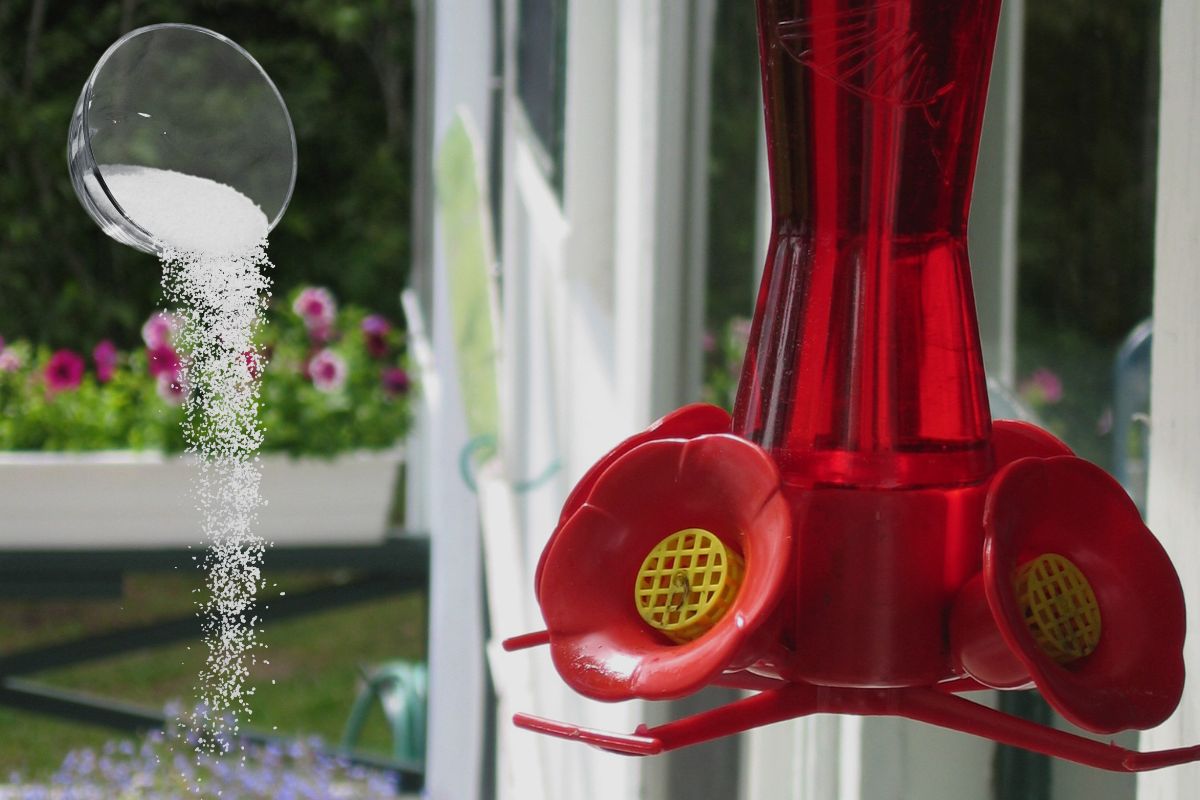Putting excessive amounts of sugar in a hummingbird feeder can have negative effects on the health of the birds. It can increase their risk of disease and other complications, and it can also lead to weight gain, which impairs their ability to fly and move around.
To ensure the safety and health of your hummingbirds, it is best to use a sugar-water mixture with a ratio of no more than 4 parts water to 1 part sugar. This ratio closely resembles the natural nectar found in flowers, which is the primary food source for hummingbirds. By using the appropriate ratio, you provide the necessary nutrients for the birds without putting their health at risk.
To create the sugar-water mixture, follow these steps:
- Measure out 1 cup of plain, granulated white sugar and 4 cups of water.
- Combine the sugar and water in a saucepan and gently heat it, stirring occasionally, until the sugar completely dissolves. Avoid boiling the mixture, as it can reduce the nutritional value for the birds.
- Allow the sugar-water mixture to cool to room temperature before filling your hummingbird feeder.
- Any remaining nectar can be stored in the refrigerator for up to a week.
It is important to note that alternative sweeteners like honey, artificial sweeteners, and brown sugar should not be used in hummingbird feeders as they can be harmful to the birds. Additionally, avoid using red dye, as it is unnecessary and may pose health risks.
Regularly cleaning your hummingbird feeder is crucial for maintaining the health of the birds. Clean the feeder with warm, soapy water at least once a week, or more frequently in hot weather, to prevent the growth of mold and bacteria. Rinse the feeder thoroughly and refill it with fresh nectar.
By providing an optimal sugar-to-water ratio in your hummingbird feeder, you ensure that these energetic birds receive the necessary nutrients and energy to thrive. This also contributes to the preservation and support of local hummingbird populations, allowing them to continue their essential role as pollinators in your garden and the broader ecosystem.
Excessive sugar in a hummingbird feeder can have various health risks for the birds. It can interfere with their digestion and absorption of nutrients, leading to malnutrition and other deficiencies. This can make them more susceptible to diseases, infections, and dehydration. Overconsumption of sugary nectar can also result in obesity among some species, impairing their ability to fly and potentially causing fatalities due to decreased mobility.
To avoid putting too much sugar in your hummingbird feeder, always mix one part white granulated cane or beet sugar with four parts water when refilling the feeder. Avoid using artificial sweeteners or honey, as they are not suitable for hummingbirds. When using store-bought products, follow the instructions on the label to ensure the correct sugar-to-water ratio.
When cleaning out old solutions from your feeders, rinse them thoroughly before refilling them with a fresh solution to prevent the accumulation of harmful residual sugars over time.
It is crucial to be mindful of the amount of sugar you put into your hummingbird feeders to protect these fascinating birds from harm. By implementing the prevention strategies discussed, you can create a vibrant and welcoming garden environment for these captivating visitors. Observe the mesmerizing aerial ballet of hummingbirds, knowing that you have contributed to keeping them safe and healthy.
